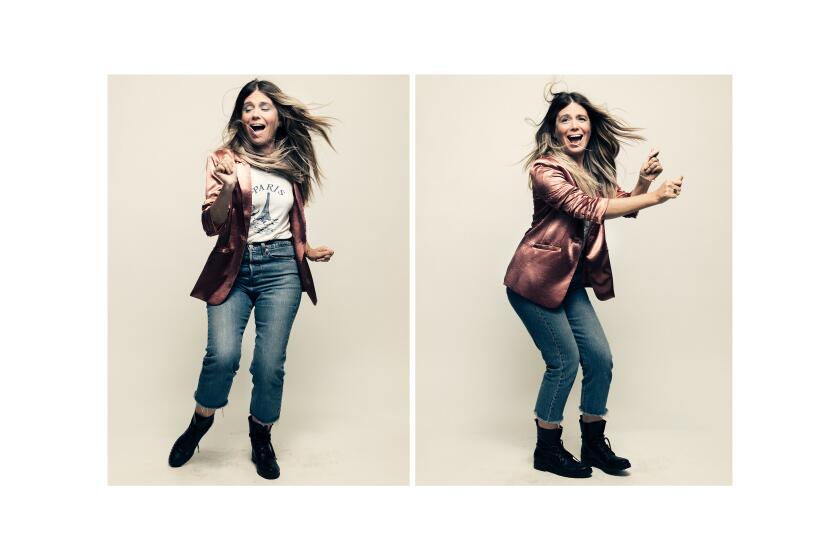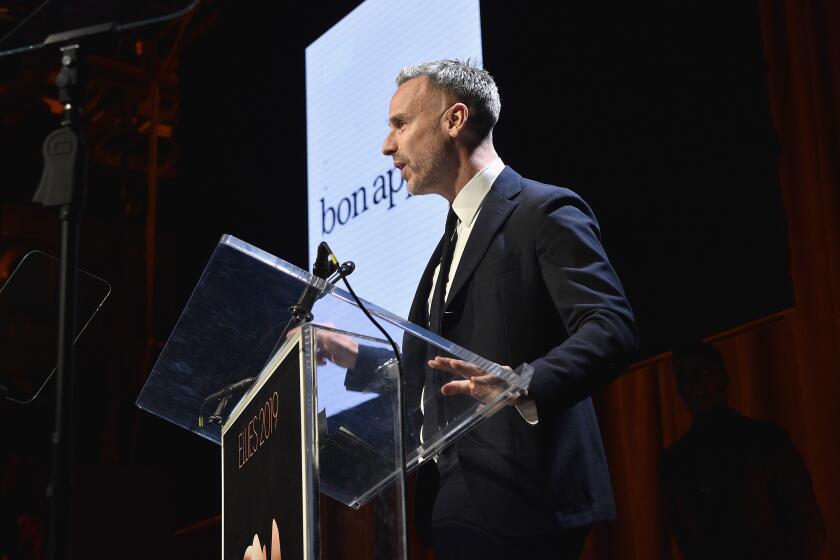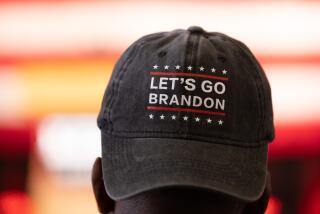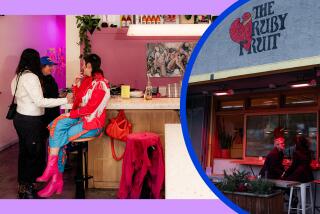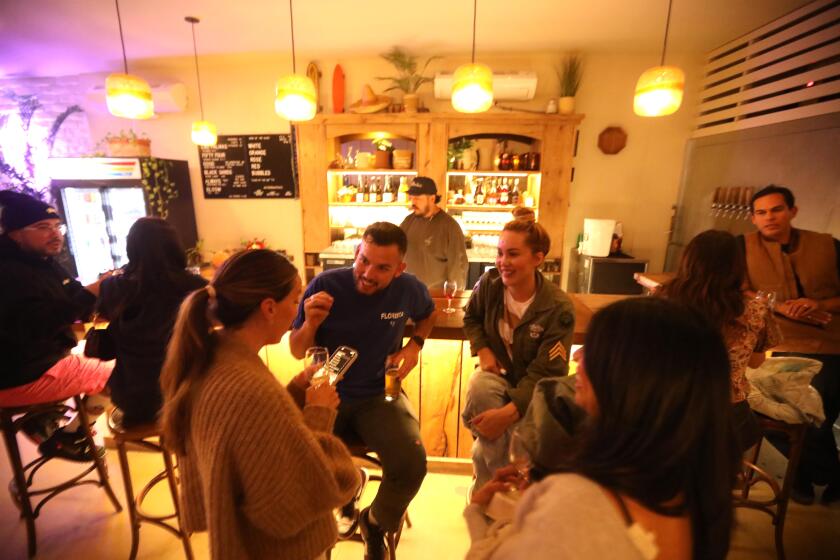Jen Gotch resigns from role at L.A. brand Ban.do after racism accusations
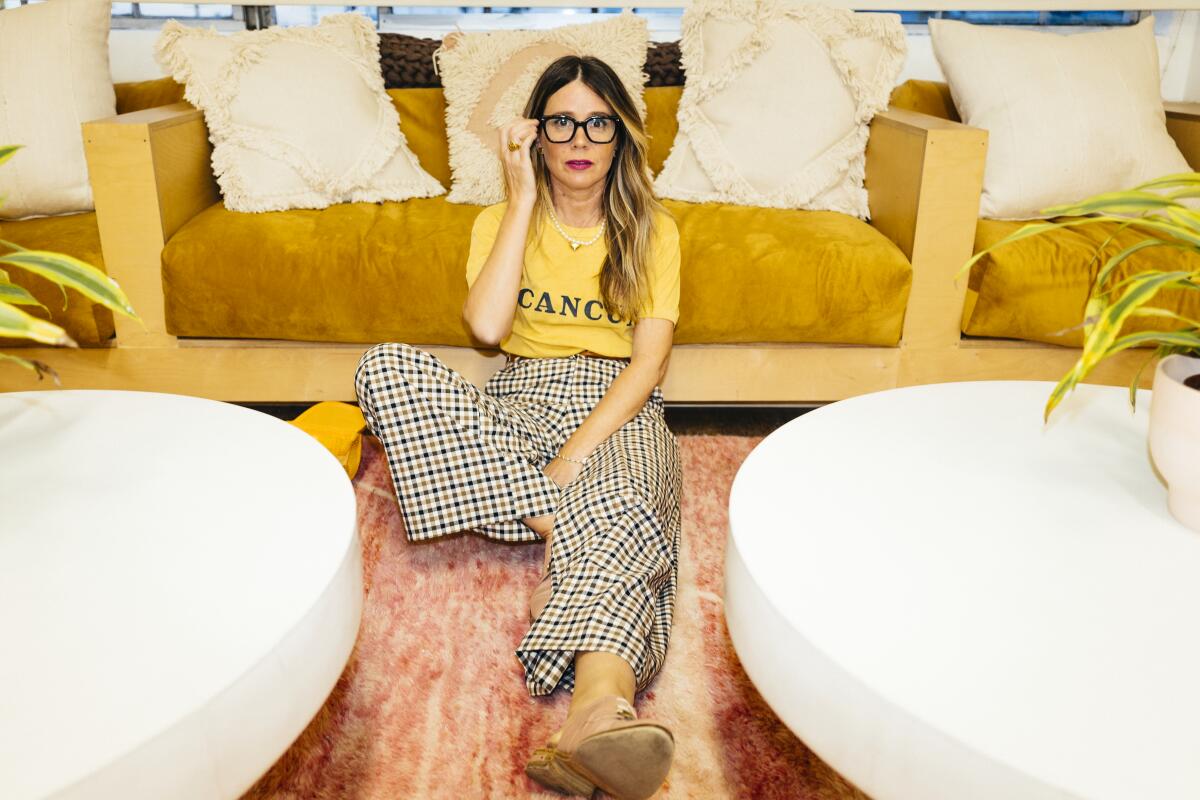
With her optimistic messaging, celebrity friends and goofy dances, Jen Gotch emerged as an archetype of the girl-boss phenomenon and a champion of mental health advocacy.
However, behind the scenes at the lifestyle and apparel brand Ban.do that she co-founded, current and former employees have exposed Gotch’s alleged racism as well as a discriminatory workplace, leading Gotch to resign as the company’s top creative on Tuesday.
In an email to The Times on Wednesday, a brand representative confirmed Gotch’s resignation and said L.A.-based Ban.do was working on finding a chief creative officer to replace her. The brand also said it is committed to ensuring that senior leadership positions, creative and otherwise, are filled by candidates who are Black, indigenous and people of color.
The author of the recently published memoir, “The Upside of Being Down: How Mental Health Struggles Led to My Greatest Successes in Work and Life,” Gotch saw her new chapter begin on June 4. That day, Gabriella Sanchez, who had worked at Ban.do as a graphic designer from 2014 to 2016, publicized the company’s “overall toxic culture.”
On her Instagram page, Sanchez alleged two racist incidents, including Gotch’s affectation of what Gotch dubbed a “plantation accent.” The other involved Ban.do’s then style director, Kelly Edmonson, whom Sanchez said had made a derogatory comment about a group of Asian women.
“I had way more things I could have said and things that were said to me personally,” Sanchez said by phone on Tuesday. Now pursuing a career as a multidisciplinary artist, she said what spurred her to share that information to her 16,500 followers was seeing a series of posts and videos from Gotch related to the Black Lives Matter protests.
“Before that [post], I messaged one of my previous coworkers, who still works there, and asked them to hold Jen accountable. I also messaged my other former coworkers who didn’t work there anymore, asking them to do the same,” Sanchez said. “I knew I was shielding Jen and Ban.do by not saying anything.”
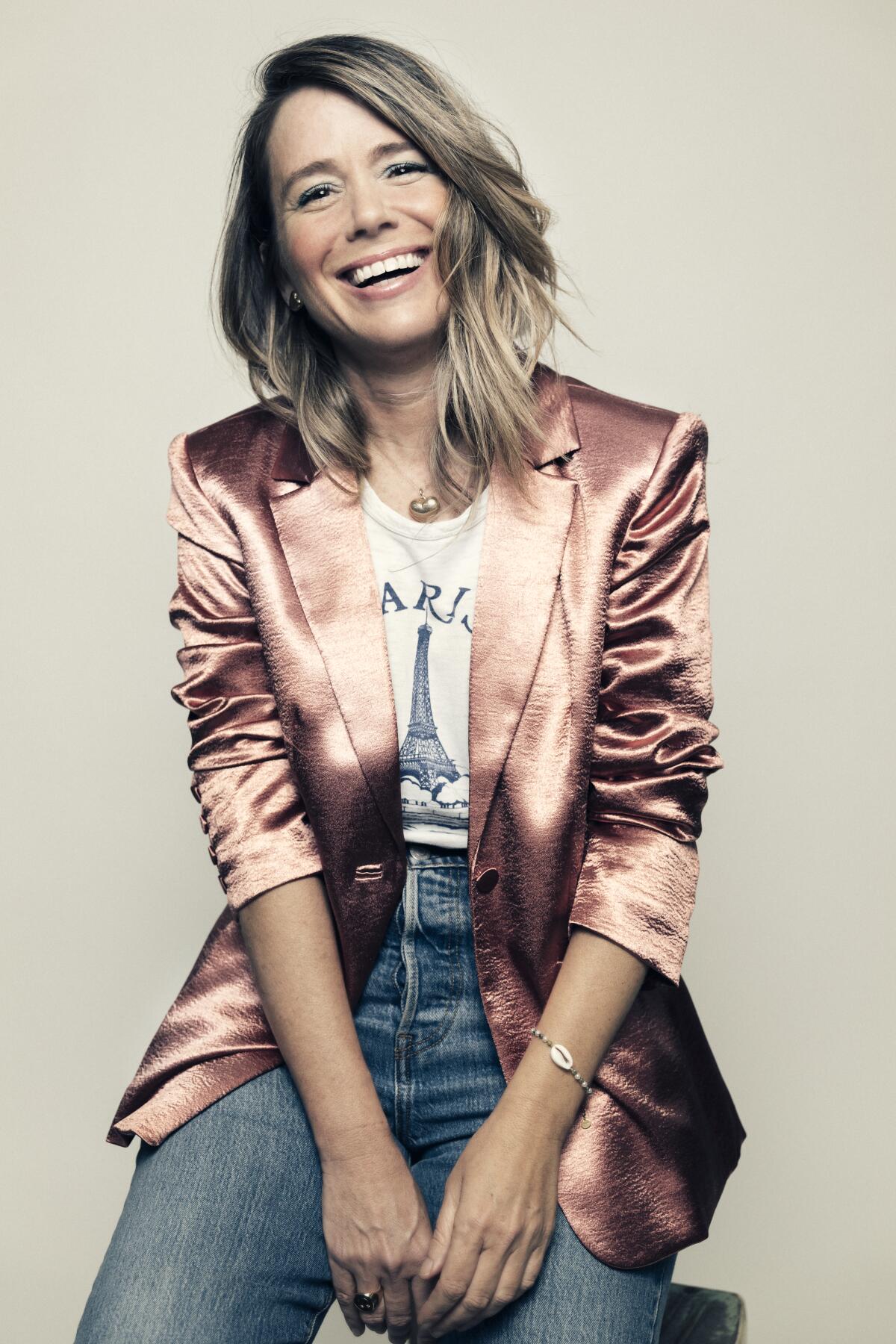
After Sanchez’s revelation, at least 17 current and former workers have gone public with their experiences at Ban.do, chronicling alleged racist behavior there and the lack of diversity with the staff, models, influencers and even clothing sizes.
On June 5, Gotch, who’s white, apologized in a post on her now-deactivated Instagram page, saying, “I was called out on social media by multiple current and former employees for being racist, for creating and helping to propagate a racist company culture and for building a brand that espouses inclusivity but doesn’t consistently reflect that. I am guilty and not only am I guilty, I have been so ignorant and so insulated by the ease and comfort of my white privilege, that up until just a few days ago, I would have passionately and sincerely denied negatively impacting others.”
Simultaneously, Ban.do said it is taking steps to create change. For instance, it will commit to hiring Black and brown models and purchasing at least 15% of the third-party products sold on its e-commerce site from Black-owned businesses.
On June 6, both Ban.do and Gotch announced on their respective Instagram pages that Gotch would step down immediately as chief creative officer and take a leave of absence. Ban.do said Edmonson hasn’t worked there since July 2019. Gotch and Edmonson didn’t respond to separate emails requesting comment.
Sparked by George Floyd’s death in police custody in Minneapolis, the wave of protesters marching for racial justice has turned into rapids of change at a variety of companies. In addition to Ban.do, organizations that have parted with founders, top editors, executives and popular personalities over racist behavior or questionable judgment included the New York Times, the Philadelphia Inquirer, Bon Appétit, Refinery29, Second City, the L.A. Galaxy and TV shows “Law & Order: Organized Crime,” “The Flash” and “Vanderpump Rules.”
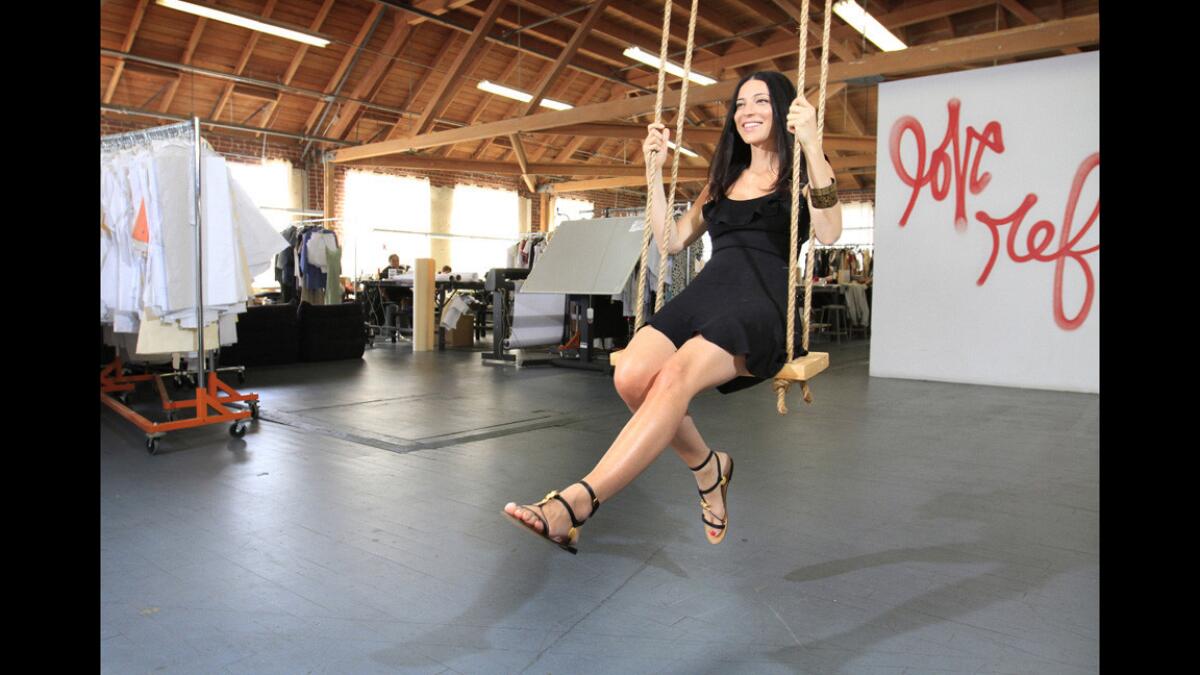
On June 7, Reformation founder and Chief Executive Officer Yael Aflalo conceded she has failed in “treating people equally ... especially the Black community.” On Reformation’s Instagram page, she said the Southern California-based fashion brand will launch an independent investigation into workplace concerns and form a diversity and inclusion board. She also pledged to donate $500,000 personally to the NAACP Legal Defense and Educational Fund, the Thurgood Marshall College Fund and the National Black Child Development Institute.
Moreover, the fashion watchdog account Diet Prada has called out on Instagram retailer Anthropologie, Italian accessories company Ferragamo and Australian swim and resort line Zimmermann for the hypocrisy behind declaring support for the Black Lives Matter movement while simultaneously allowing allegedly discriminatory practices.
The coronavirus pandemic is one factor contributing to the accelerated pace of resignations and calls for action, according to Jennifer Brown. At her namesake consulting firm, Brown has worked with Microsoft and Walmart and written books on inclusion in the workplace, including her 2019 tome, “How to be an Inclusive Leader: Your Role in Creating Cultures of Belonging Where Everyone Can Thrive” (Berrett-Koehler Publishers).
Brown said the pandemic has uncovered the systemic racism exacerbating the inequity among COVID-19 victims. Plus, it has cultivated empathy and community between people who are quarantined at home on their phones, tablets and computers.
“We had slowed down and we had not just passed by it in a news cycle. But we really sat with it,” she said. “We saw it with more open hearts and minds.”
Jen Gotch is the face of Ban.do, the company she co-founded in 2008. She’s also become a champion of mental health advocacy with a following all her own.
The five-day turnaround for Gotch’s social-media justice stood out because of the stark difference between her image as the public face of the company she cofounded in 2008 and the reality for Ban.do’s employees. She’s been profiled in a plethora of prominent stories, including a story in March by The Times. Selling pink $20 water bottles and $88 daisy-print jumpsuits, Ban.do’s website touts: “Gone are the days of cool meaning exclusive and elusive. We think it’s defined by championing others and supporting individuality.”
Hanna Teklu, a former director of marketing and communications at Ban.do from November 2016 to March 2018 and the only Black employee during that period, said she tried to suggest expanding the circle of influencers who played a big role in the business. “Ultimately, the people who were in charge of model selections and final sign-off on our influencers really pushed into the direction of a homogenous bunch,” Teklu told The Times on Wednesday, describing that bunch as women who “like Millennial pink, and they’re white and skinny.”
“Jen specifically was more focused on the outward appearance of what Ban.do was like,” Sanchez said. “It was even said to people, ‘You were lucky to work here; you should be thankful that you’re lucky to work here.’ It was a privilege itself. We should give all we have to help grow this. That was her mentality, that she was already giving us all the opportunities so she didn’t need to make sure our mental health was healthy.”
Brown said that to create an inclusive work environment, a company needs a diverse leadership team from the start. “If you have a preponderance of one identity, there is a danger of group think and there is a danger of a lack of new ideas,” she said.
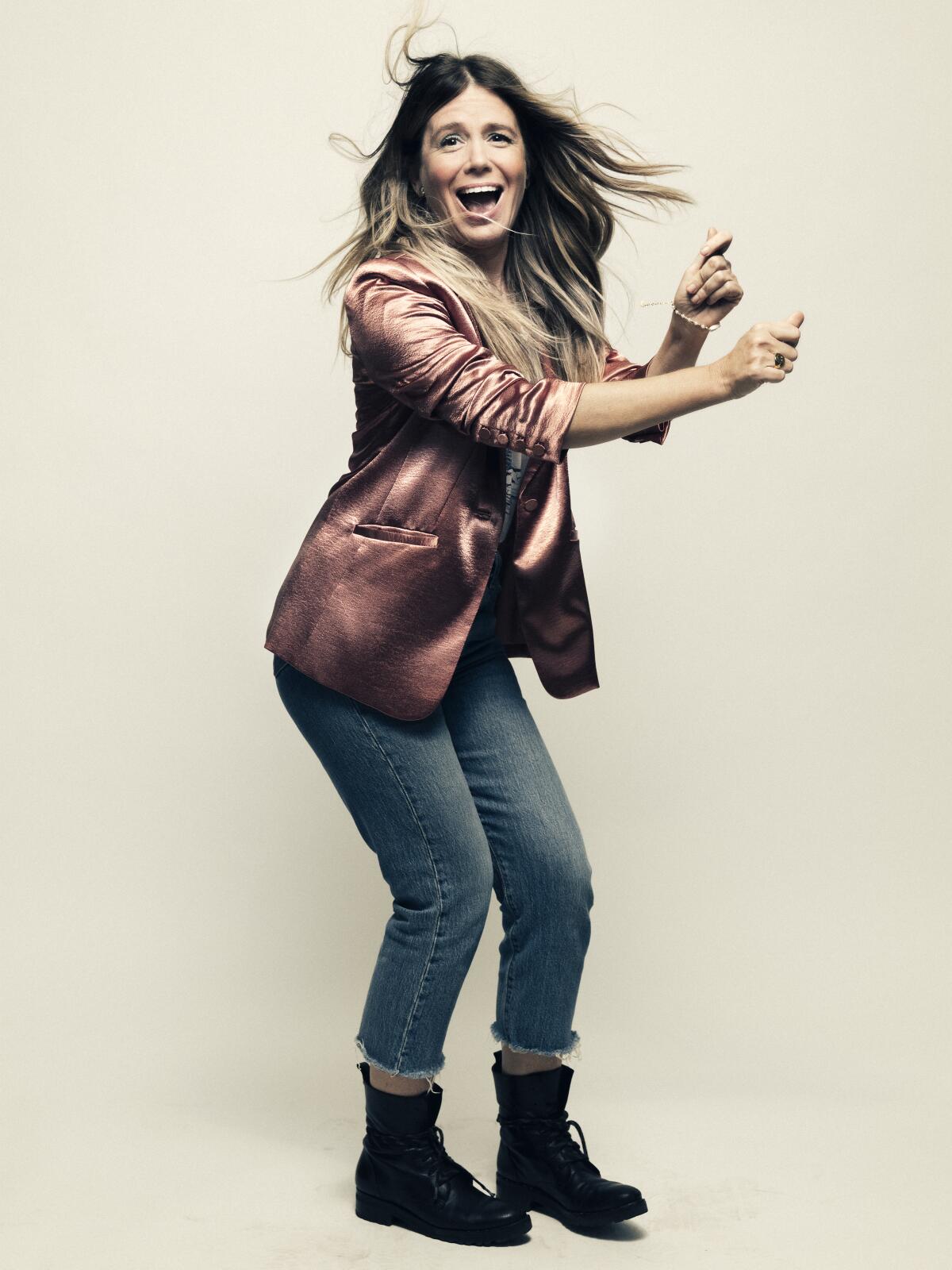
As for Gotch and the girl-boss squad, Brown said, “Just because you’re a woman doesn’t mean you’ll run a more inclusive workplace culture. We make this assumption that if you have a certain identity you get a hall pass. There is a ton of work that all of us have to do.”
Another challenge at Ban.do was its growth. Tiffany Moldof, who served as design director at Ban.do from 2014 to 2017, said the number of employees in the L.A. office had doubled to 40 during her time there. She worked closely with Gotch and assumed many of Gotch’s creative responsibilities. She recalled it was a challenge to give structure to the startup, which was acquired by L.A.-based entrepreneurs Todd and Kim Ferrier in 2012.
“I think with the way Jen had an open-door policy, she said you can complain to me. But it never went anywhere. There were no fixes,” Moldof said by phone on Tuesday.
Former employees said Lifeguard Press, a Bowling Green, Ky.-based company owned by the Ferriers, played a role in running Ban.do. Lifeguard Press, which makes stationery and giftable mementos for brands such as Kate Spade New York and Lilly Pulitzer, addressed Gotch and Ban.do on its home page but also distanced itself from them.
Part of the message signed by the Ferriers read: “Recently, an LA based company we invested in, ban.do, and founder Jen Gotch were called out for racism in the workplace. We realize that even though we are a separate business with some shared resources, our lack of awareness is not an excuse. We want to extend our most heartfelt and sincere apologies to anyone who our ignorance and consequently inaction, directly or indirectly harmed.”
Adam Rapoport is stepping down from Bon Appétit
A Ban.do spokeswoman said Lifeguard Press was not Ban.do’s parent company. The Ferriers added in another statement: “As our employees shared ‘Ban.do has the opportunity to take a firm stance against systemic racism and to send a strong message of support and solidarity to BIPOC community.’ We believe that is true and want to use our platform to help the Black Lives Matter movement. The only way forward is to educate ourselves, to listen, create change and amplify the voices that need to be heard. Please hold us accountable.”
The pronouncements didn’t absolve Lifeguard Press from responsibility in the eyes of some former employees, who reported to Lifeguard Press executives in Bowling Green. “Everything we did eventually had to be approved by Lifeguard Press,” Sanchez said.
Moldof added: “A part of me feels very upset. The owners use women to sell products for women, and they’re allowing this woman to take all of the fall.”
On June 8, a new Instagram account called Bando_Anonymous, run by people who didn’t want to be identified, began posting statements by current and former employees about the behavior of Ban.do and Gotch “in hope for continued transparency [and] accountability,” according to the account bio.
Also that day, a group of Ban.do’s current employees submitted a walk-out letter of requests and vowed not to return until the leadership team committed to change. Ban.do said the list of steps and changes included Gotch’s immediate resignation, the addition of a Black Lives Matter banner and a comprehensive resource page aligned with the movement on Ban.do’s website, charitable donations to organizations supporting the Black Lives Matter movement and a more clearly stated zero tolerance policy on racism added to the employee handbook.
Through Ban.do, the employees stated: “We did not do this for Ban.do. We did not do this for Lifeguard Press. We did not do this for Jen Gotch. We believe that Jen Gotch’s resignation is the first step to making things right, and that is why we called for her to do so. We did this to stand in solidarity with our former coworkers and to show that we believe Black Lives Matter.”
By June 10, Ban.do’s leadership agreed to work toward all of the changes with timelines that the employees helped put in place. This news came as activewear brand Girlfriend Collective announced on social media that it’s decided to pull its partnership with Ban.do. Ban.do declined to comment on Girlfriend Collective’s decision.
A question remains: What is Ban.do without Gotch?
“A whole persona came with the company,” Sanchez said. “While our job was to hold up the company, it was also to support Jen’s persona as well because they were so tied.”
Still, Sanchez thinks Gotch is capable of reconciliation. “I’m not asking for her to be ostracized from society forever,” she said. “I want Jen to do what she said, I guess, and take time by herself, not chronicling her journey for how many followers.”
The scandal has shaved off a bit of Gotch’s Instagram following. Her number of followers on the photo and video platform dropped to 240,000 on Wednesday from 245,000 in mid-March.
Gotch still represents Ban.do’s heart. Visitors to Ban.do’s website will still learn that a 14-karat gold-plated heart necklace, designed in collaboration with local designer Jurate Brown, was inspired by Gotch’s very own heart-shaped keepsake. As one customer named Jana S. commented about her $98 purchase, “Thank you Jen — and her Grandma (who gave her the necklace she wears that inspired this necklace).”
More to Read
Sign up for The Wild
We’ll help you find the best places to hike, bike and run, as well as the perfect silent spots for meditation and yoga.
You may occasionally receive promotional content from the Los Angeles Times.
